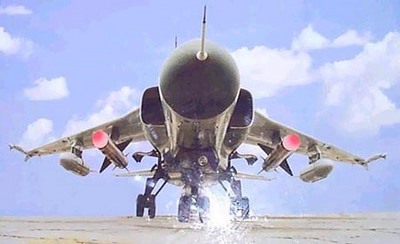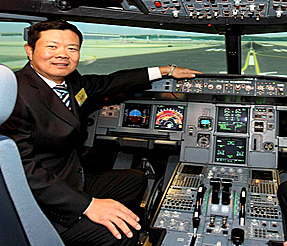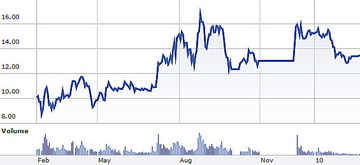
Photo: Internet
A FORMER deputy mayor of a major industrial city in Southern China made a killing on a particular A-share – 170,000 yuan (25,000 usd) over 11 trading days to be exact.
While some are lauding him as a market wizard, others are suggesting that a bit more than wizardry may have helped him realize a 25% ROI in such a short timeframe.
According to a story in the Qianjiang Evening News, the jury is still out on whether Li Jian, the 40-year old former politician -- who late last year took up a new position as deputy general manager of the state-run Aviation Industry Corp of China (AVIC), parent of Xi’an Aircraft International Corp (XIAC) – invested in the unit based on market knowledge available to the general public.
It was Li’s purchase of 64,200 of XIAC’s (SZA: 000768) A-shares in July last year at 10.7 yuan which 11 days later were dumped at 13.3 yuan apiece, a windfall which began raising praise, skepticism and perhaps a fair share of envy in financial analyst circles around the country.
The 170,000 yuan (25,000 usd) the investment allowed him to pocket came as he was incumbent vice-mayor of the southern industrial city of Shaoguan, a political position which had him overseeing financial matters for the Guangdong province-based city with a focus on development reforms and major project promotions and approvals.
Li insists that his profits reaped from the Shenzhen mainboard were aboveboard and the result of studying publicly accessible data and analysis, and that no insider trading came into play.
He also says he is uncomfortable with the “Stock Wizard” moniker that some in the media have given him, and he recently asserted that he is “no different from any other ordinary (equity) investor.
“It was a normal investment,” he added.
If we could all be so normal… market newcomers and owners of struggling portfolios are no doubt wishing.

Seeking truth from facts
In December of last year, XIAC released the results of its voluntary-response inquiry into the top 773 holders of its A-shares for most of last year.
It revealed that between April and November, there was another spike in turnover activity in late September for XIAC shares shortly after Li assumed his post at parent firm AVIC, during which over 600,000 shares changed hands, more than 10 times Li’s original transaction two months earlier.
The data also revealed that the day after Li bought his 64,200 shares in XIAC in July, the valuation rose 4.12%.
And 11 trading days later, it reached a high of 13.3 yuan per share, which coincided with the day Li sold off his stock in the company.
“Over the period, Li’s fortune and timing were both mysterious and phenomenal,” the Qianjiang report added.
The record shows that among the top 37 traders of XIAC stock for most of last year, Li’s shareholding turnover topped the list.

“Are we expected to believe that at the time of the transaction, Li was unaware that he was about to become a high-ranking executive of the parent of the firm that had just netted him a quick 25,000 usd?” the media report concluded.
The fact that the story ends in question mark is revealing, as the story continues to elicit debates and strong opinions from both backers and detractors of Li’s “good fortune.”
It is unlikely that this story will go away soon, and like the aviation sector, took off from the start and shows no signs of orbit decay.
Last month, China’s top online portal Sina.com revealed that 87% of respondents in a 93,000-strong survey believed that some insider trading must have occurred with Li’s XIAC buying and selling.
Despite widespread resentment of government officials playing the stock market, Beijing has no laws on the books explicitly prohibiting these activities.
With China now a full-fledged space power, having put men in space in recent years and with eyes on a moon landing as well as hopes to take market share away from established names like Boeing and Airbus with its indigenous commercial aviation industry, the stakes in the sector are sky high.
NextInsight will continue to follow stories like this to keep current or potential investors in Chinese shares as informed as possible.






